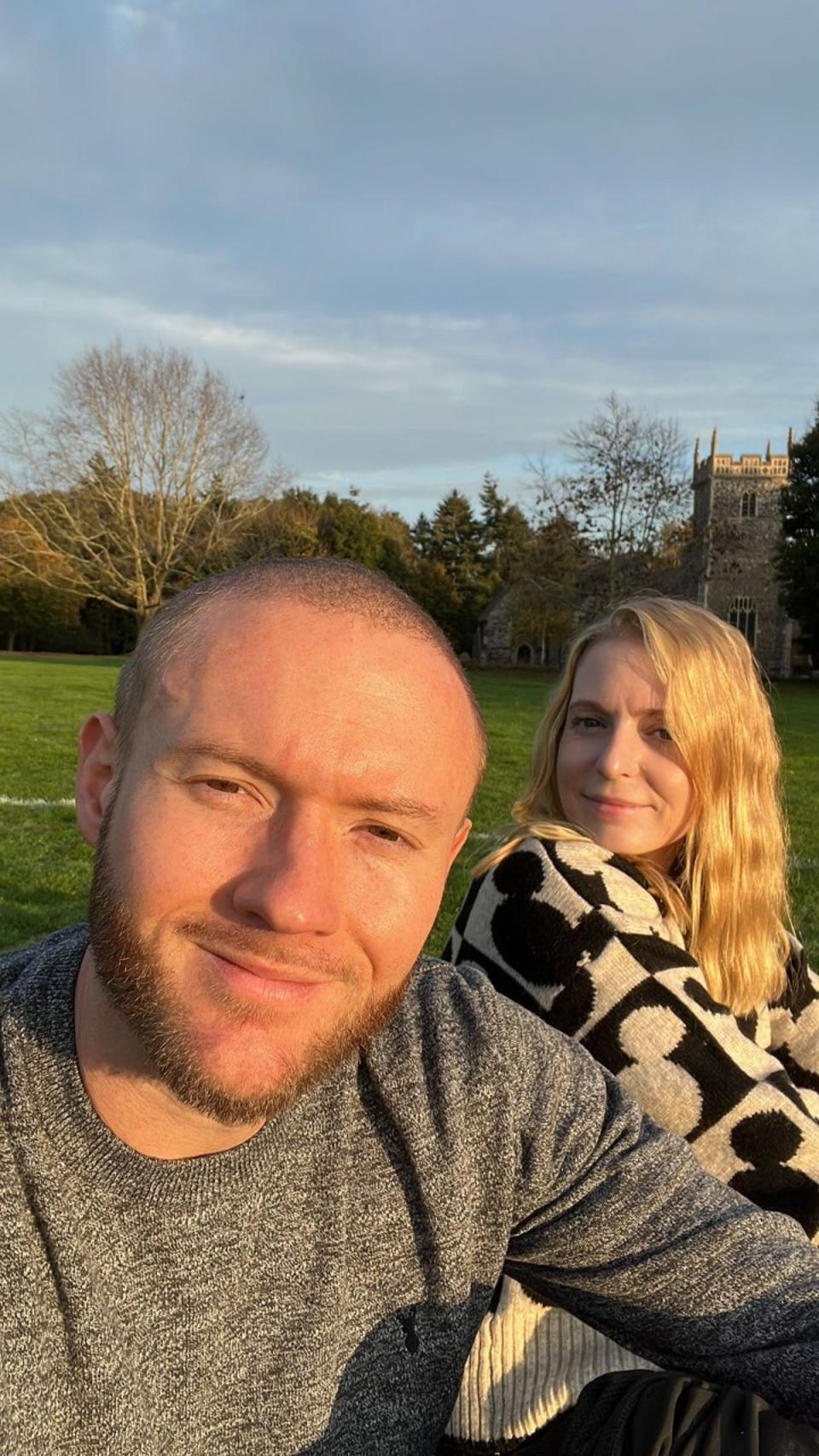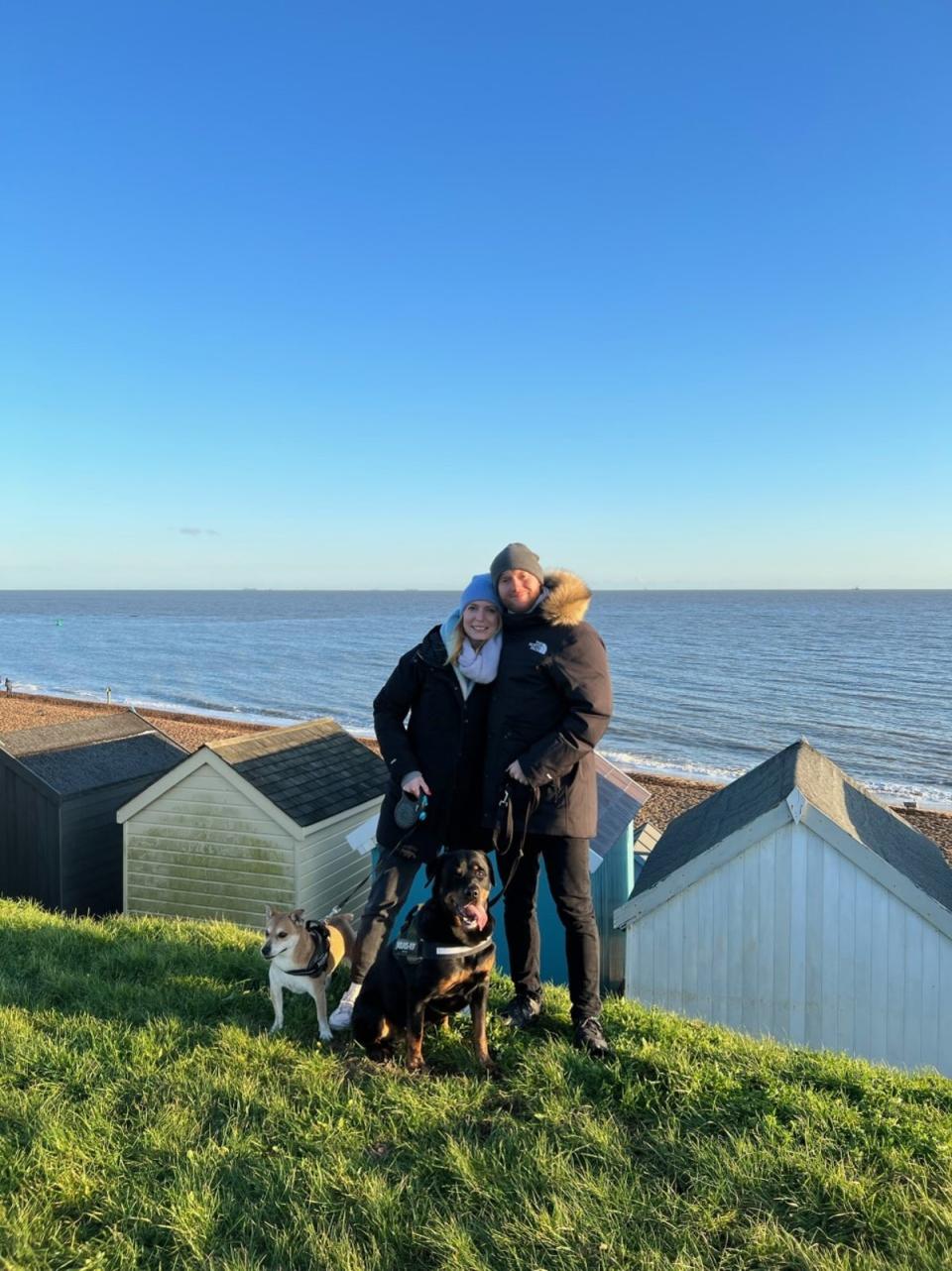‘Fit and healthy’ man told he had ‘stomach bug’ diagnosed with stage four bowel cancer
A “fit and healthy” man told by his GP he had a “stomach bug” was devastated when it turned out to be stage 4 bowel cancer.
Gary Welsh from Stowmarket, Suffolk, was 34 when he was given his diagnosis in 2021. Before receiving the life-changing news, the account manager described himself as “super fit and healthy” with a routine of going to the gym regularly, running and weight-lifting.
The only thing that bothered him was the “occasional” bout of Irritable Bowel Syndrome (IBS), which he had suffered with “on and off” since 2015 and had checked by his GP several times over the years.

Around a month before he was admitted to hospital and given his devastating diagnosis, he had been experiencing stomach pain and vomiting. However, on a phone consultation with his GP, he was told it was just a bug.
Mr Welsh later discovered that the pain was most likely a bowel blockage caused by a tumour.
“It’s your living nightmare,” he said. “It’s the worst thing you can be told. But even then, the hospital said they were 99.9 per cent sure it was benign.”
The 34-year-old’s road to diagnosis began after he received his second Covid vaccine jab in October 2021. Following the jab, he felt unwell but knew it was common to experience flu-like symptoms.

However, when his temperature hit 40C a week later, he was rushed to the hospital and told he had sepsis.
After days of scans and investigations into what might be causing the infection, Mr Welsh was told he needed surgery to remove a mass that had been found in his bowel.
He went in for a colonoscopy and post-operation was told he had stage 4 cancer, which had spread to his omentum – the tissue that surrounds organs in the lower abdomen –and surrounding lymph nodes.
In December 2021, he was given his first chemotherapy treatment and was told he had a 60 per cent chance of being cured.

But after six months of chemo, scan results showed that the treatment had not worked.
He was told his cancer was now incurable and he has the aggressive BRAF mutation, the same as the late Dame Deborah James.
“When you are told you have cancer, you think you are going to die and you feel like it is going to happen tomorrow.
“The most difficult thing is being told you are incurable. There are no words to describe it.”
Bowel cancer is the fourth most common cancer in the UK and the second biggest cancer killer. More than 2,600 new cases are diagnosed each year in people under the age of 50, according to bowelcancer.org.uk.
After receiving the diagnosis at such a young age, Mr Welsh is now determined to shine a spotlight on the rise of bowel cancer among people under the age of 40.

“I was healthy, never smoked, never overweight. I had no genetic links to cancer,” he said. “I got cancer through living my life normally, which is so worrying.
“We need to spread awareness. People who have always had IBS should push their GP to look into it more.”
He added that “maybe something could have been picked up earlier” during his visits to the GP with stomach trouble.
His loving wife Lizzy and sister Zoe Welsh have set up a GoFundMe page to raise money for medication that is not on the NHS but is privately available in the UK.
One cancer treatment drug they are looking at is called Avastin, which they hope could extend the time he has left. However, it costs up to £2,000 per cycle.
While Mr Welsh is still exploring options provided by the NHS, he and his family want to ensure they have the financial freedom to take different paths if the NHS treatments do not work.
“I’m aware that the stats aren’t good,” Mr Welsh said. “But by hook or crook, we have to get to a curative position. You have to aim towards it otherwise you will feel totally helpless.”
You can donate to Mr Welsh’s appeal here


